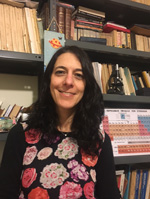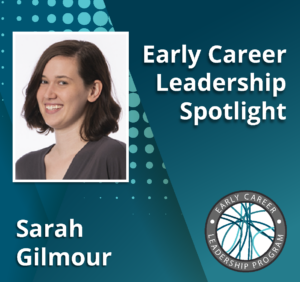Guest post by Irini Topalidou.
This year’s Nobel Prize in Physiology or Medicine honored the discovery of a major breakthrough in cancer treatment: immunotherapy. At a news conference after the announcement, one of the recipients, James P. Allison, stated: “The reason I’m really thrilled about this is I’m a basic scientist.” And he continued: “I didn’t start these studies to cure cancer, but to show how T cells work. I’m just lucky enough that, 20 years later, it’s helping cancer patients.”
Some may wonder why Allison is so keen to identify himself as a “basic” scientist. A basic scientist is driven by curiosity and the desire to understand the mysteries of nature. This term is often used in contrast to applied and translational research, which is designed to solve specific problems, like treating a disease or creating a product. Many people might ask why someone would waste valuable time and money pursuing research to satisfy their curiosity when applied research can actually cure diseases?
Allison’s scientific path gives an answer to this question. It was his curiosity that drew him to try to understand the biology of T cells, the soldiers of our immune system. His early research led to the discovery of a protein (CTLA-4) that inhibits activation of the T cells. Allison had the bright idea to use this discovery as a fuel for applied research: he wondered whether blocking CTLA-4 with an antibody could release the immune system from inhibition thus allowing it to attack tumors. His hypothesis turned out to be correct and the CTLA-4 antibody was able to reduce cancer in rodents and later on in humans.
Allison’s work led to development of Ipilimumab, the first immune checkpoint inhibitor drug. It was approved by the FDA in 2011 and thereafter put into use to extend the lifespan of patients with metastatic melanoma. Allison’s passion for basic research led directly to the development of this drug. Without the discovery of CTLA-4 nothing would have followed.
Basic research creates the foundation on which applied research can be built. Without the fundamental knowledge, applied research would be almost impossible.
Allison, by declaring that he is a basic scientist, seems to want to take a stand on the basic vs applied research debate and emphasize the importance of basic research in science and drug discovery. The immense value of basic research lies in the fact that it allows for freedom from bias and the possibility to discover the unexpected and the unpredictable. Basic science’s main driving force is curiosity and the desire to understand fundamental principles; thus it is unrestricted and open-minded. It offers endless possibilities for discovery, limited only by the available technical tools and the limits of the human mind. The element of curiosity may seem irrelevant on the surface but is actually the key to how basic science has yielded profound and unforeseen discoveries.
To solve medical problems we first need to understand the fundamental principles of biology. Recent advances in biomedical sciences are sometimes so spectacular that the public gets the sense that scientists are close to a full understanding of the human body. In reality, every new discovery reveals how far away we are from gaining a true understanding of how cells and organisms work. Basic research allows us to assemble the very first pieces of a massive puzzle. Seen through this prism, basic biology is critical because it reveals where we are missing pieces of this puzzle.
Given that basic research has no guarantees and can be time-consuming, funding agencies sometimes prefer to support more translational, hypothesis-driven, and less risky types of research. For this reason, in recent years the biomedical field has moved towards a more translational and systems approach of understanding biology, much of which is built upon fundamental concepts identified through basic science. But such application-driven research is narrowly focused and therefore more biased and restricted. And not supporting basic science research would end the information flow and feedback from basic to applied science.
It isn’t possible to predict if a new discovery will directly benefit society. Despite the risk-taking nature of basic science, the scientific literature is full of examples where, as in Allison’s case, fundamental research led to significant advancements in human health. The pioneering work of basic scientists Sydney Brenner, John Sulston, and Robert Horvitz led to critical discoveries concerning organ development and programmed cell death. This fundamental work opened up the biomedical field in completely new directions in understanding neurodegenerative diseases, cancer, and stroke, among others. Another example is the recent development of the CRISPR technology for genome editing, which has revolutionized the biomedical field. CRISPR technology was the result of twenty years of work understanding an obscure defense system of microbes, after the first discovery of the CRISPR locus in archaea and bacteria by Fransisco Mojica.
In light of such examples, recognizing the overall benefit that fundamental research has so far offered humanity should urge us to, like Allison, champion its significance and advocate for basic science to remain the leading force of biomedical research.
About the Author:
 Irini Topalidou is a molecular biologist and geneticist who works as a Research Scientist in the Department of Biochemistry at the University of Washington in Seattle. She is a strong advocate for basic research and the use of model organisms in biological research. In her research she uses C. elegans and mammalian cells to study dense core vesicle trafficking and Gq signaling in neurons.
Irini Topalidou is a molecular biologist and geneticist who works as a Research Scientist in the Department of Biochemistry at the University of Washington in Seattle. She is a strong advocate for basic research and the use of model organisms in biological research. In her research she uses C. elegans and mammalian cells to study dense core vesicle trafficking and Gq signaling in neurons.













